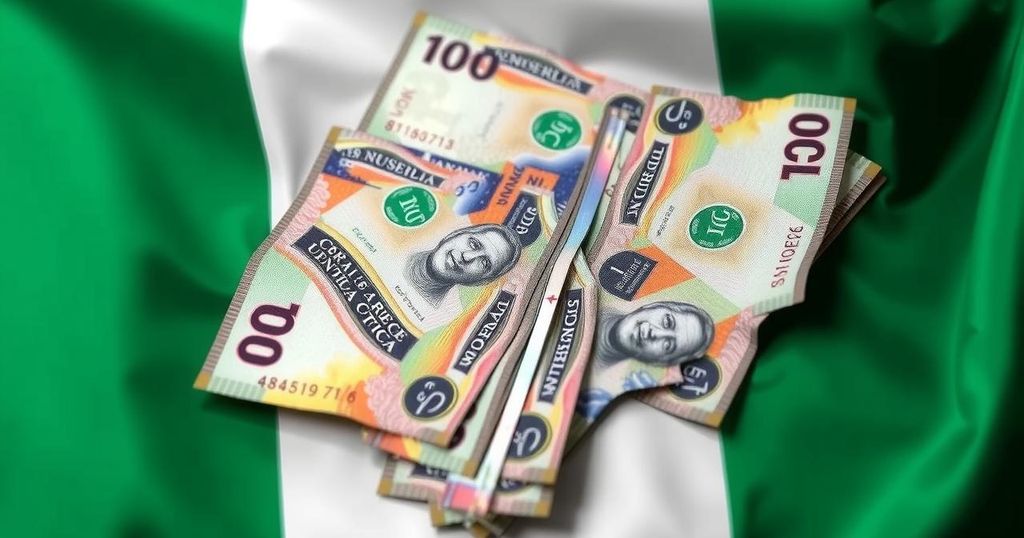Nigeria’s Currency Reforms: A Step Towards Economic Competitiveness

World Bank Chief Economist Indermit Gill stated that Nigeria’s currency reforms have positioned the naira as one of the most competitive in 20 years. Despite concerns about poverty and unrest due to devaluation, Gill encourages the continuation of these reforms for long-term economic benefits while advocating for protective measures for vulnerable citizens.
Nigeria has witnessed significant currency reforms under the leadership of President Bola Tinubu, positioning the naira as one of the most competitive currencies in the past two decades, as highlighted by World Bank Chief Economist Indermit Gill. The strategic decision to float the naira and eliminate fuel subsidies has been pivotal in averting a potential fiscal crisis. Although this devaluation has led to increased poverty and heightened fears of civil unrest, Gill emphasized the importance of Nigeria adhering to these reforms. During a presentation at a Nigerian Economic Summit Group meeting, Gill remarked that the current exchange rate represents a substantial opportunity for the private sector to thrive. Prior to these measures, the official exchange rate hovered below NGN500 per dollar, while the parallel market rate was nearly NGN900. The ongoing depreciation of the naira has intensified economic difficulties for many, prompting governmental action against illegal forex trading and global cryptocurrency activities to stabilize the economy. Despite some calls for a reversal of the floating exchange rate policy due to the naira’s continued decline, Gill firmly advised against such measures, asserting, “This is only the beginning. Nigeria will need to stay the course for at least another 10 to 15 years to transform its economy. It is very difficult to do these things, but the rewards are massive.” He urged the Nigerian government to implement protective measures for the most vulnerable populations by increasing direct financial support to low-income households and establishing social safety nets utilizing the savings from fuel subsidy cuts.
The Nigerian economy has long struggled with currency stability, leading to adverse effects on various economic sectors and the populace. In recent years, the government has faced criticism for its handling of the naira, which often traded at significantly higher rates on the parallel market compared to official rates. This disparity created a challenging environment for businesses and consumers alike, resulting in inflationary pressures and deepening poverty levels. The decision to float the naira is seen as a critical step toward restoring confidence in the currency and fostering economic growth, although it brings with it immediate hardships for many citizens. The call for social safety measures highlights the necessity of a balanced approach to economic reform that prioritizes the welfare of vulnerable populations while pursuing long-term goals.
In summary, Nigeria’s recent currency reforms under President Tinubu have rendered the naira one of the most competitive currencies in two decades, according to Indermit Gill of the World Bank. While the devaluation presents challenges, particularly regarding poverty and social unrest, the potential for private sector growth is significant. It is imperative for the government to implement supportive measures for the economically disadvantaged while remaining steadfast in its reform agenda to achieve lasting economic transformation.
Original Source: news.bitcoin.com








